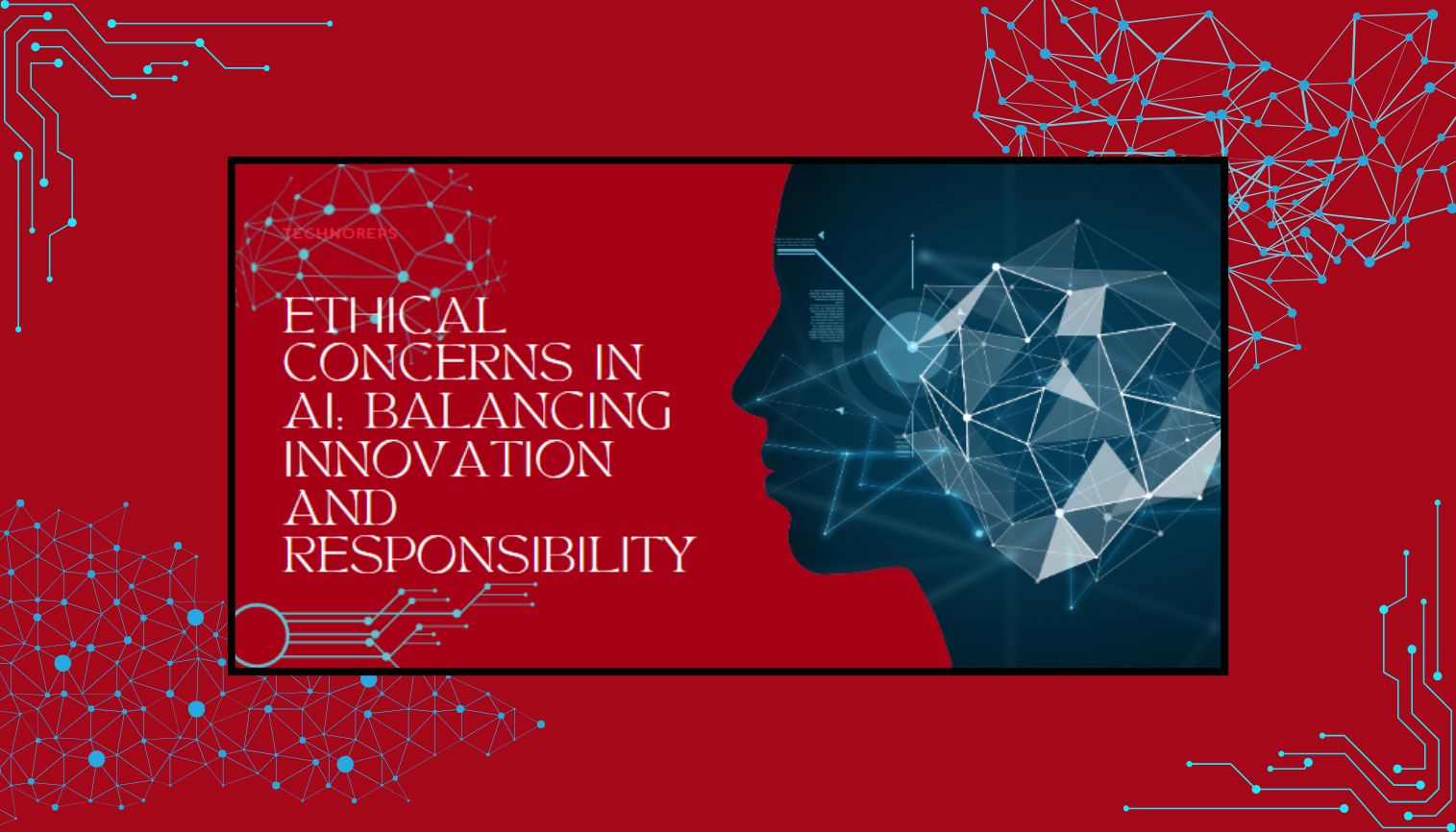AI is transforming industries, offering innovation and opportunities, but also raising ethical questions. This blog explores balancing growth with responsibility.
What Are Ethical Concerns in AI?
AI systems are becoming increasingly advanced, and they can make decisions without human intervention. This can raise ethical issues like bias, accountability, and privacy. AI algorithms learn from data, which means they can inherit biases present in the data. If not addressed, these biases can lead to unfair or discriminatory outcomes.
For instance, AI systems used in hiring can unintentionally favor certain demographic groups over others. It is essential to ensure fairness and prevent discrimination when implementing AI.
The Need for Responsible AI Innovation
AI holds great promise in areas like healthcare, where it can help diagnose diseases more accurately. In marketing, AI-driven tools enable personalized customer experiences. But with power comes responsibility. As AI continues to evolve, it is crucial to consider its social impact.
How can we innovate responsibly? Here are a few key principles to guide ethical AI development:
1. Transparency in AI Systems
Transparency ensures that AI systems are understandable and explainable. Users should know how AI makes decisions. For example, when using AI for customer service, companies must disclose if a chatbot is involved rather than a human representative. This builds trust and promotes responsible use.
2. Bias Prevention
AI algorithms can perpetuate biases in the data they are trained on. This can lead to unfair treatment of certain groups. It is essential to use diverse data sets and regularly audit algorithms to identify and eliminate biases. This way, AI can be used fairly and inclusively across all sectors.
3. Privacy Protection
AI systems process vast amounts of data, often personal information. It is important to prioritize data privacy. Businesses must comply with data protection laws, such as GDPR, to ensure users’ information is safe. Secure AI models must be designed to protect sensitive data and prevent unauthorized access.
The Role of Ethical Guidelines in AI Development
Ethical guidelines play a critical role in ensuring AI technologies are developed and used responsibly. Governments and organizations must create frameworks that promote transparency, accountability, and fairness in AI applications. These guidelines can also address concerns about the potential misuse of AI, such as deepfakes or surveillance.
For example, organizations should adopt ethical AI principles like those outlined by the OECD’s AI Ethics Guidelines. These principles guide developers in creating AI systems that benefit society while minimizing harm.
Addressing Accountability in AI Systems
When AI systems make mistakes or cause harm, who is responsible? The question of accountability is complex. It is necessary to establish clear guidelines to determine liability in case of AI failures. Whether it is an AI-driven recommendation system or a self-driving car, accountability must be clearly defined.
For example, if an AI system causes harm in a healthcare setting, the company or individual who developed it should be held accountable. Establishing accountability mechanisms ensures that AI technologies are used safely and ethically.
AI and the Future: Striking the Right Balance

As AI continues to evolve, it’s essential to maintain a balance between innovation and responsibility. Ethical considerations should be woven into the fabric of AI development from the start. Only through collaboration among developers, policymakers, and society can we create a future where AI benefits everyone.
Innovation should not come at the cost of fairness or transparency. By prioritizing ethics in AI, we can unlock its full potential while ensuring it serves humanity responsibly.
Conclusion
AI is reshaping the world, but we must approach its development with caution. Addressing ethical concerns like bias, transparency, privacy, and accountability is crucial to ensuring AI’s responsible use. By creating clear guidelines and continuously improving AI systems, we can foster innovation while protecting society.
For businesses, adopting ethical AI practices is not only a moral obligation but also a strategic advantage. Responsible AI fosters trust and can help create a more sustainable, equitable future.






